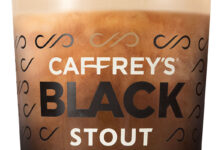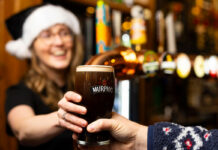Operators mustn’t overlook one of the most crucial aspects of their operation

CUSTOMER expectations are only going one way in the on-trade, and that means that a focus on delivering a consistent, quality product is paramount.
And for a pub to achieve this, its draught drinks offer must be underpinned by a comprehensive cellar management schedule.
Carl Goode, product and marketing manager at beer gas management service BOC Sureserve, told SLTN: “Since bar managers put so much effort into getting the atmosphere and the facilities right, offering good quality food, keeping the place clean, selecting top quality beers to sell, and ensuring service is slick and efficient – why would they risk potentially ruining the beer [with poor cellar management]?
“In recent years, quality has moved from being just an issue for the brewer to one that concerns all landlords.
“The whole dispense process needs to work seamlessly and produce a consistent product – the way a beer is pulled; the type of glass, nucleated and shaped so the carbon dioxide gas breaks out of a lager in exactly the right way; the way it is presented to the customer, with the right head, at the right temperature, and with the right clarity and drinker appeal.”
Dougie Stoddart, commercial director at Hubbard Products, stated that serving good beer is “critical” to a pub’s success.
“It is vitally important that people are made aware of how important the cellar is,” said Stoddart.
Beer quality has moved from being just an issue for the brewer to one that concerns all.
“The cellar is the hub of the pub and should be treated accordingly.”
Stephen Dickson, dispense quality manager at Tennent Caledonian Breweries, reiterated that point.
He said: “The cellar is the engine room of any licensed premises which has a draught offering so if it is not well maintained then the output dispense is likely to be of poor quality.”
Good quality training, which covers all aspects of cellar management, will help operators avoid such a scenario, reckons Goode of BOC Sureserve.
“When you teach bar staff how to pull a pint, you’ll probably cover the importance of clean glassware, chilling and the 45-degree pour,” he said.
“You might also explain why glasses are etched to nucleate the gas and generate better bubbles, and which glasses are right for, say, a Guinness versus a cider.
“These are all essential lessons if you want to create draught masters in pouring perfect pints – and happy customers.
“However, all that work can be undermined if you don’t get the gas mixture right, or fail to use food-grade gas.
“Customers don’t much care for bubbles in a Guinness, a frothy head of beer or a flat cola – all consequences of using the wrong gas or bad gas.”
The solution, said Goode, is to ensure all staff “are well aware of the different dispense gases and their uses”, warning that if operators get the mix wrong, drinks quality will suffer and customers “may not come back”.
The difference between a good cellar and a great one comes down to a matter of passion for great pints and cellar management, said Dickson of Tennent Caledonian Breweries.
“In my opinion the real difference lies with the passion of the publican to ensure they are providing the right environment to provide a perfect pint every time, not just on the odd occasion,” he said.























